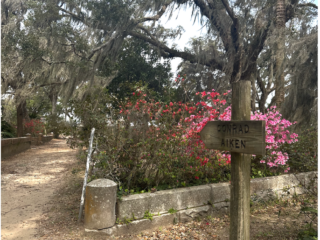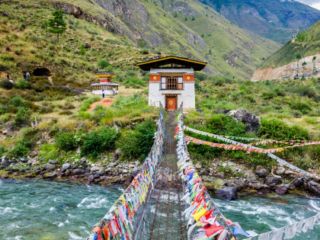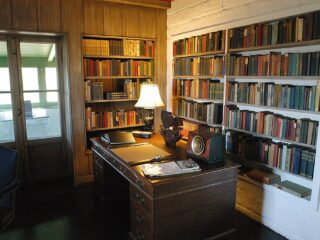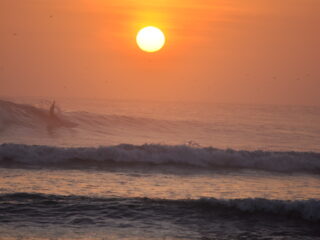by Jennifer Ciotta
I acquired the unique opportunity to study abroad in the West Indies, specifically Barbados, in 1999. Besides bestowing me with the “travel bug” for life, I received a distinctive sort of literary education. For most English majors, as I was, the typical American-university curriculum consists of the usual canon beginning with Beowulf, eventually moving through the Romantic poets, then transferring to African-American slave narratives, and finally ending with more current literature such as Hemingway or Fitzgerald.
During my stay in the Caribbean, I was introduced to another canon: the writing of the West Indies. Many Americans do not know these authors exist; however, their voices resound through the islands in British and American English, patois, French and Spanish. One author in particular has dominated the West Indian literary scene for years: Jamaica Kincaid.
She was born Elaine Potter Richardson on the tiny island of Antigua in 1949. Located in the Lesser Antilles island chain, Antigua is a small, tourist destination made up of light pink sand beaches. Its cultural traditions are derived from both African and British societies; for example, music and dance stem from their ancestral African roots, while at school, children learn from the British English school system, even taking the life-altering A-levels (tests that determine if a student is admitted to the university of their choice). Most Antiguans speak with a West Indian-British accent, pronouncing words such as “Thomas” by saying the “th.” The accent itself is often mixed up with a Jamaican accent, even to native speakers of the Caribbean.
Kincaid lived on Antigua for the first 17 years of her life. At first she had a loving relationship with her mother, being the only child, she was the center of her mother’s affection. However, after Kincaid’s mother gave birth to boys, the family’s attention was shifted to their wants and needs. Young Jamaica’s relationship with her mother was destroyed, resulting in angst toward her family with feelings of bitterness and neglect.
In Kincaid’s famous novel Annie John, the main character has the same experience as her creator, Kincaid. For example, in the early years of Annie’s life, her mother relished in her maternal role and treasured her daughter:
That night, as a punishment, I ate my supper outside, alone, under the breadfruit tree, and my mother said that she would not be kissing me good night later, but when I climbed into bed she came and kissed me anyway.
Annie constantly tests the limits of “goodness” in the novel. She serves as a constant troublemaker for her fellow classmates, yet she is a brilliant student, exactly as Kincaid had been. Just like her character, young Jamaica won a scholarship to the prestigious Princess Margaret School, and received high marks in the strict British English system. Her eagerness to learn began at an early age, dating back from age three in particular when Kincaid’s mother taught her to read.
The character of Annie discusses her love for reading as well, noting her library card as her prize possession. However, despite her good deeds, and similar to Kincaid, Annie’s mischievousness gets the best of her. For example, Annie prides herself on being both a voracious reader and a stealer of library books. Likewise Kincaid had confessed in an interview with Salon magazine that she stole library books as a child as well.
Thriving in school, Kincaid’s personal life fell apart at age nine when her mother gave birth to three sons consecutively. It was at this time, she felt a shift in her relationship with her mother from being kissed at bedtime–even when she was punished–to feeling completely neglected. The character of Annie also displays similar thoughts, except at the age of 12. However, Annie could not understand why her mother chose to withhold love:
I immediately said how much I loved this piece of cloth and how nice I thought it would look on us both, but my mother replied, ‘Oh, no. You are getting too old for that. It’s time you had your own clothes. You just cannot go around the rest of your life looking like a little me.’ To say that I felt the earth swept away from under me would not be going too far.
Jamaica’s educational world came crashing down as well when her stepfather, who was the only father Kincaid knew, became ill. Thus she dropped out of school at the young age of 13 to help take care of her family. In the book, Annie stays in school but she does not feel pleasure from her studies as before. The friends she once cherished, the games she once played give way to contempt for her broken relationship with her mother.
The anger morphs into a deep depression where Annie is bedridden for months, defying treatments from the doctor, her grandmother and the obeah (a West Indian medicine woman). When the depression subsides, Annie returns to school, only to continue on a path of resentment toward her family and her classmates.
At seventeen, both Kincaid and Annie were sent away by their families. Kincaid was shipped off to Scarsdale, New York for an au pair position where Annie was transported to England to studying nursing. Both did not want to work or study these subjects, but a sense of relief was felt upon leaving Antigua. At the end of the novel, Annie says:
I did not want to go to England. I did not want to be a nurse, but I would have chosen going off to live in a cavern and keeping house for seven unruly men rather than go on with my life as it stood.
The novel ends with Annie leaving Antigua at 17 while Kincaid’s life continued on. Jamaica changed au pair jobs to Manhattan, working for New Yorker writer Michael Arlen and his family. This was her first connection to New Yorker magazine. After attending university and dropping out, she began to write, taking on the pen name Jamaica Kincaid to hide her newfound career from her family back in Antigua. This led to Kincaid’s job as a staff writer for the New Yorker, and subsequently led her to meeting William Shawn’s (the editor) son, Allen Shawn, who she married in 1979.
Through all this success, she cut ties with her family in Antigua, refusing to send them money and not even opening her mother’s letters. Finally, Kincaid felt free from the neglect and oppression she once fought so hard against. As Kincaid herself has said “if I hadn’t become a writer, I don’t know what would have happened to me; that was a kind of self-rescuing.”
The literary world praised Kincaid for the beauty and power of her words in novels such as Lucy, My Brother (about her brother’s death from AIDS) and My Garden Book. Annie John was an unusual work of literature since “the New Yorker published each of the novel’s chapters separately before they were complied and published as the novel. For this reason, reviewers initially wondered if they should categorize the book as a novel or a collection of short stories.”
Kincaid has also received numerous awards and honors, including a National Book Award nomination for My Brother.
In recent years Kincaid remains outspoken and a leading authority on literature. Her past interview with Salon magazine raised some eyebrows as she harshly criticized the New Yorker and its former editor, Tina Brown (1992-1998). Kincaid says:
I think the New Yorker has no literary tradition anymore. It’s now in the realm of promotion and publicity. . .I predict that this period in the New Yorker’s history will produce no lasting writers. The writers coming up will be munched up and out.
Even though Kincaid may not agree with all the happenings in American literary society, she has a place among the literary greats of today. By experiencing the devastation of her childhood cut short, she created through hardship thus overcoming the struggles of a West Indian woman and setting an example for all women to remain steadfast in their goals.
Even though we leave Annie on a ship boarding for England at the end of the novel, Jamaica Kincaid continues on with her writing today, living in Vermont, teaching at Harvard University, giving birth to two children with Allen Shawn, and divorcing–and through all this, she is a survivor from a small island in the West Indies.








